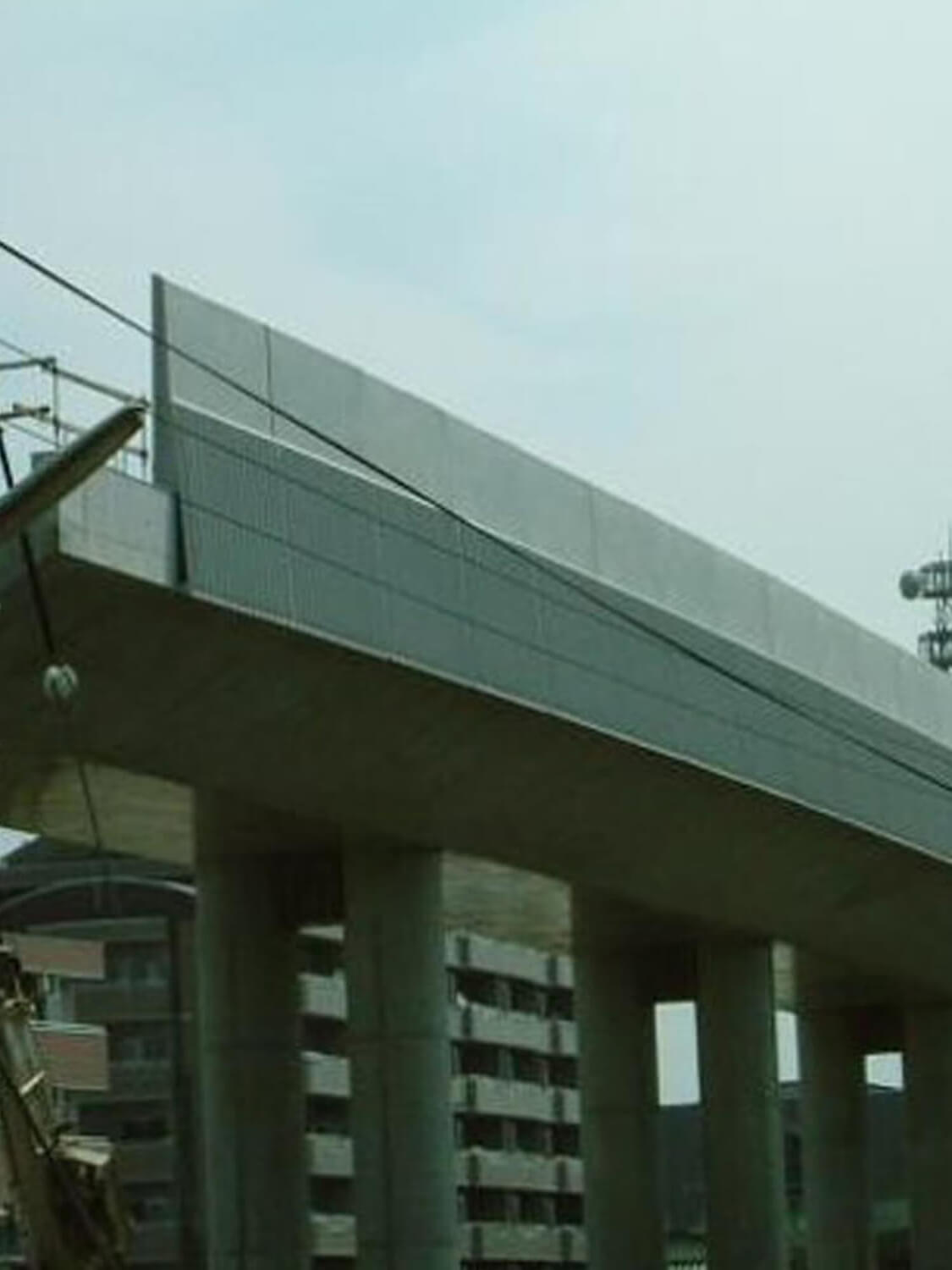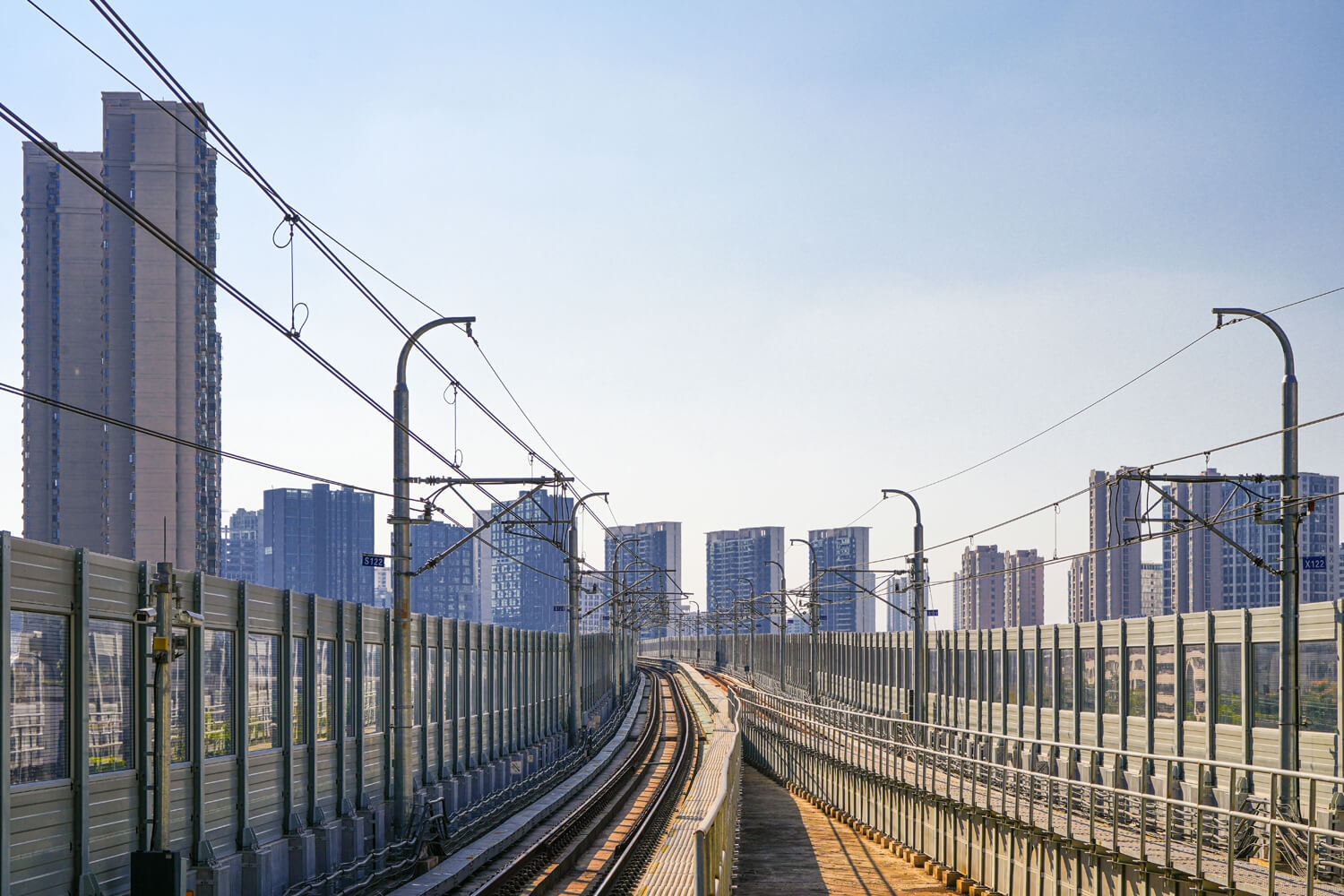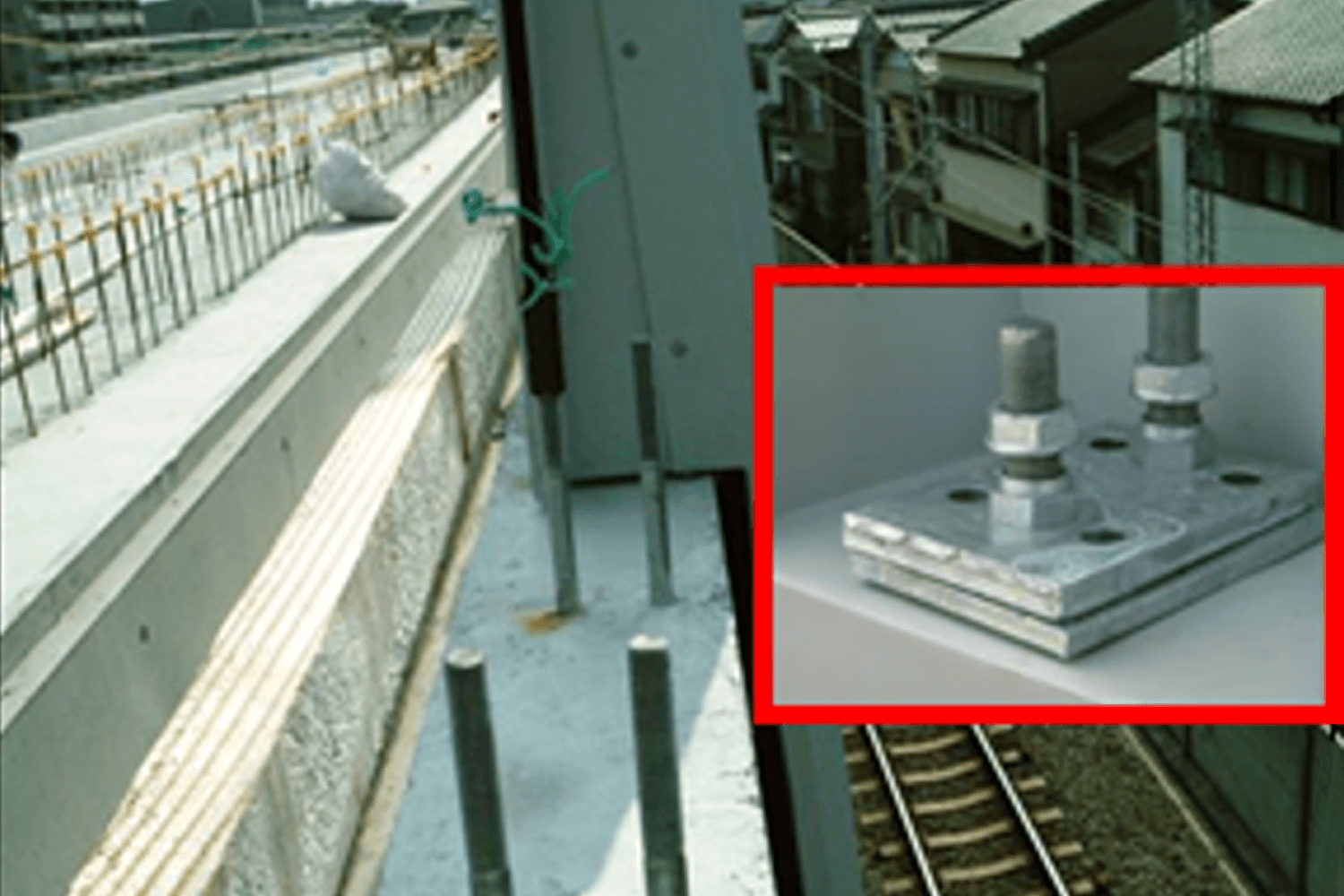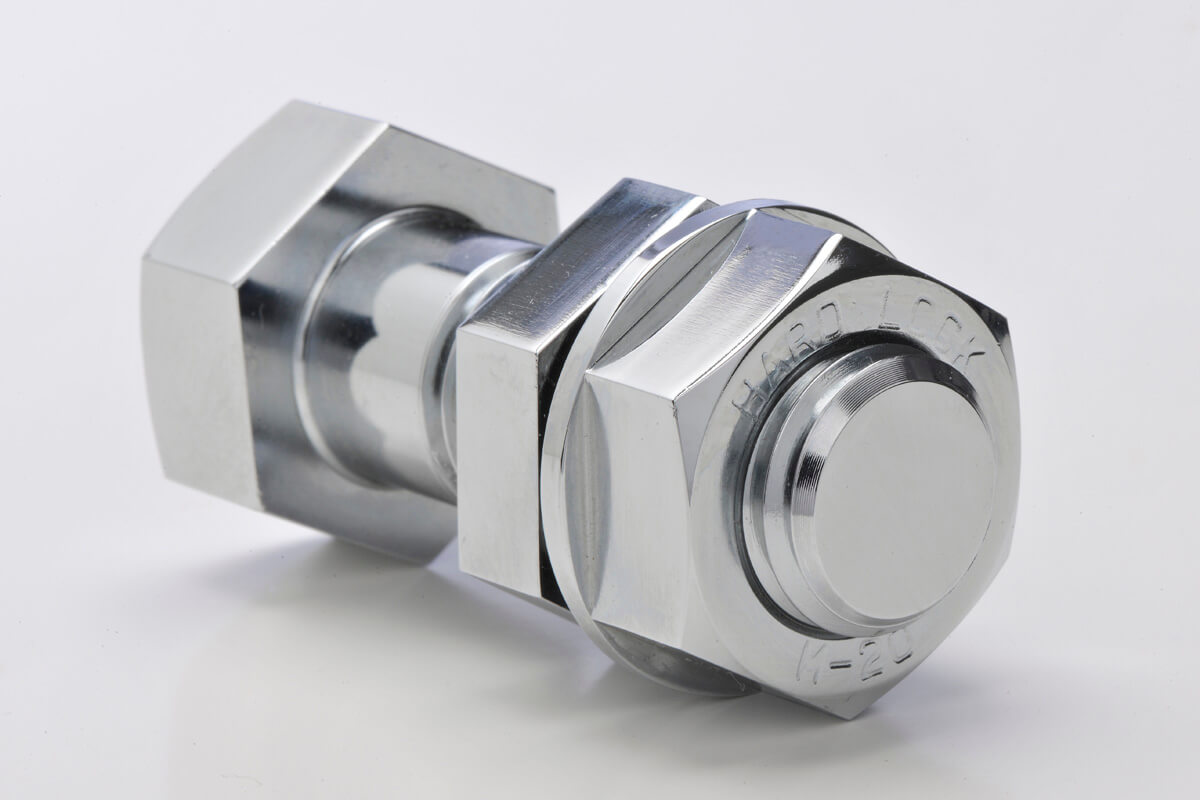Highway / Train Noise Barrier- Anchor Bolts
*Some images are for illustration purposes only.

Preventing Loosening in Critical Infrastructure
Highway and railway noise barriers play a crucial role in protecting communities from sound pollution. These structures rely on secure anchor bolts to remain stable over decades. Traditional methods like double nutting or inexpensive self-locking nuts (e.g., U-Nuts, Nyloc Nuts) often fail to prevent loosening, especially when used on galvanized bolts or when installation conditions are imperfect.
For over 50 years, HARDLOCK Nut has been the fastening solution of choice in hundreds of noise barrier projects, ensuring structural integrity even under challenging environmental conditions.

Overcoming Anchor Bolt Fastening Challenges
Securing noise barriers involves several technical and environmental challenges that standard nuts fail to address:
- Vibration Loosening: Wind and traffic vibrations gradually loosen improperly torqued nuts, leading to potential collapse.
- Surface Misalignment: Anchor bolts embedded at slight angles cause uneven pressure on the nut face, compromising fastening strength.
- Galvanized Coating Issues: Thick plating on bolts prevents effective thread engagement with common self-locking nuts.
- Inconsistent Torque: Variable bolt conditions and installation angles often lead to torque errors that accelerate loosening.
- Safety Risks: Just a few loose nuts out of thousands can jeopardize the stability of the entire structure.
With aging infrastructure and tightening safety regulations, a more dependable solution is essential.
How HARDLOCK Nuts Secure Noise Barrier Anchor Bolts

HARDLOCK Nut uses a metal-wedging self-locking principle that performs consistently across a wide range of conditions:
- Superior Loosening Prevention: Provides stable fastening even on worn or galvanized bolts with inconsistent threading.
- Installation Flexibility: Works effectively even when anchor bolts are slightly angled, avoiding problems caused by uneven clamping surfaces.
- Non-Rotational Locking: Maintains clamp load without relying on surface friction, unlike conventional nuts.
- Long-Term Durability: Withstands environmental stressors like vibration, wind pressure, and corrosion for decades.
- Low Maintenance: Minimizes the need for inspections or retightening, reducing lifetime maintenance costs and risk.
Benefits of HARDLOCK for Infrastructure Safety
By replacing traditional fastening methods with HARDLOCK Nut, noise barrier systems benefit from unmatched stability and reliability. Whether securing anchor bolts on highways or along rail lines, HARDLOCK Nut addresses the root causes of joint loosening, ensuring long-lasting performance and peace of mind for engineers, contractors, and the public alike.
